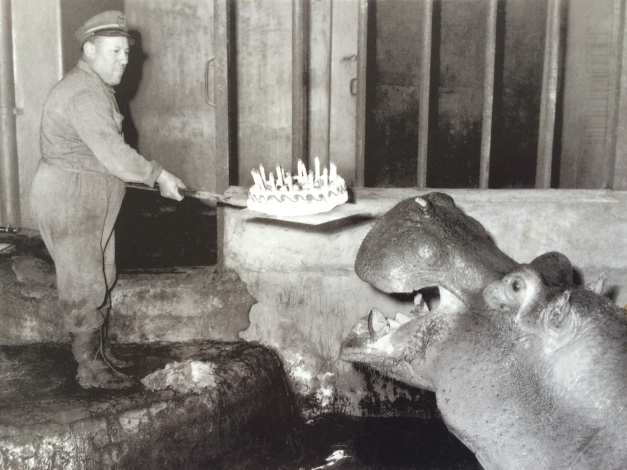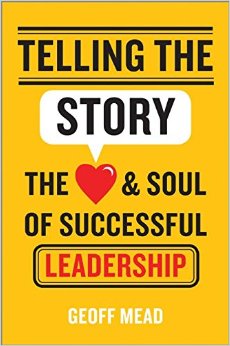
Fashions in leadership theory come and go: trait theory (either you’ve got it or you haven’t got it), participative leadership, leader-member exchange theory (you scratch my back and I’ll scratch yours), situational leadership, contingency theory, path-goal theory, servant leadership, transformational leadership, authentic leadership, charismatic leadership, functional leadership, relational leadership, systemic leadership, even (and I hold my hands up to this one) narrative leadership.
Faced with such a welter of models we can be forgiven for feeling a bit confused about what we actually mean by the term leadership. Nevertheless, we can identify a dominant discourse – a set of underlying tacit assumptions – running through most of the extensive literature produced by the academic and professional “leadership industry” in the 20th and 21st centuries.
Professor Amanda Sinclair of Melbourne Business School brilliantly exposes these tacit assumptions in her iconoclastic book – Leadership for the Disillusioned. See if you find yourself nodding or shaking your head as you read this summary of her critique:
We have been so surrounded by this view of leadership that it has become difficult to think of leadership outside this framework of meanings. In this view, leadership is:
- a weighty responsibility that is usually borne by men in high places;
- an individual performance (despite claims that followers are part of leadership);
- an activity developed and played out in interlocking elites of the military, business and politics, centered around the interests of large-scale global capital;
- generally concerned with expanding an organization’s growth, “reach” or material success through normative influence, and without mention of power;
- of such importance as to generate a leadership development industry, involving many people in teaching and training others to be leaders;
- of such importance that it is among the most researched of all subjects, demanding large-scale surveys and a proliferation of instruments to measure leadership or its potential;
- a task requiring disembodied, cerebral command and tending to assume physical manifestations of leading and following to be irrelevant; and
- assumed to be of inherent moral value, neglecting frailties, vulnerabilities or the darker side of the leader psyche.
How we think and talk about leadership matters because the language we use to conceptualize something frames our understanding of it and influences how we behave. Of course, individuals can and do make a difference but I also want to open up the idea of leadership beyond the dominant heroic ideal of a handful of supremely able and charismatic (usually male) leaders.
The heroic discourse, which Amanda Sinclair so eloquently describes, is long past its sell-by date. As Einstein is credited with saying – “no problem can be solved from within the level of consciousness that created it” – and there is now so much evidence that our current leadership paradigm is failing to tackle (or even address) the most significant issues of our time that we might just be on the verge of a qualitative shift – a revolution – in our thinking. If you think more of the same is going to do the trick, put your hand up. No? I thought not.
However, I’m not overly optimistic that this revolution will succeed, because the heroic ideal, which is still widely promoted by the business education and leadership development industries, has become what Michel Foucault called a “regime of truth”: a way of thinking and talking about something that is unconsciously held in place because it serves to maintain existing power structures. It is, for example, used to justify stratospheric rates of remuneration for some UK private sector CEOs that are 150-200 times (in the US, 300-400 times) the size of regular employee salaries.
Challenging dominant discourses whether in business, government, academia, or society at large is not for the faint-hearted. Unsurprisingly, most of us are reluctant to change our minds when the privileges accruing from our way of life rather depend on us holding a certain point of view. Nevertheless, in the spirit of inquiry, let me offer an alternative point of view that opens up different ways of construing the leader’s role and offers new possibilities for action.
So let’s begin by putting the term “leadership” in its place. Why does this need doing? Because reifying the concept turns the active phenomenon of leading (verb) into the static entity of leadership (abstract noun). Instead of leadership being something that people do, it becomes something that people either have or don’t have: an attribute; a quality; a trait. Instead of recognizing that we can all participate in the process of leading, we assume that leadership is a zero-sum game and divide the world into leaders and followers, then wonder why those who are labeled followers are disengaged or disaffected.
If we focus our attention on leading as an active process then we must ask ourselves what we actually do when we lead. This is a much more useful and interesting question than, for example, whether leaders are born or made. Chuck Palus and Wilfred Drath of the Centre for Creative Leadership suggest that one crucial activity is helping to make sense of things (the process of arranging our understanding of experience so that we can know what has happened and what is happening, and so that we can predict what will happen) in a complex environment.
This may seem obvious but its consequences are far-reaching because it obliges us to think of leading, less in terms of taking charge and making things happen, and more in terms of participating in a social process of meaning-making. Although some people may have nominal positions of leadership (supervisor, manager, director, CEO, etc.) they exercise their responsibilities by engaging in an ongoing process of sense-making with other people who in turn, by virtue of their participation in the process, are also engaged in the process of leading.
This way of thinking also implies a more inclusive notion of leadership (it’s hard to get away from the word) and a more dynamic sense of how systems and organizations actually work: leaders emerge from or step into a set of relationships between people already engaged in multiple processes of sense-making from which shared (and contested) understandings materialize and from which shared (and contested) commitments to goals and actions flow. Thus, as Drath and Palus say:
The process of making meaning in certain kinds of social settings [actually] constitutes leadership. In other words, we can regard leadership as meaning-making in a community of practice.
Thinking of leadership as a process of sense-making that permeates a group, promotes a more fluid and realistic view of human relations and a less lofty and exclusive idea of what it means to be a leader. Leadership becomes the lifeblood of a living system and not just the perquisite of those in high places. This does not deny that some people have more power and influence than others in the process of sense-making because of formal hierarchy, acknowledged experience, intelligence, political alliances, personal charisma, etc. But it does offer the possibility of engaging a wider range of people in taking responsibility for their contribution to sense-making and it does suggest that an important shift in attitude is required from those in nominal leadership roles.
Leading as sense-making (or meaning-making) is a powerful meta-concept that sidesteps the definitional quagmire that has plagued the whole field of leadership studies since its inception. It invites people occupying nominal positions of authority to think differently about their role than simply “taking charge and making things happen” and it opens up the possibility of participating in acts of leadership to anyone – inside or outside of organizations – who initiates or contributes to the process of sense-making.
These are challenging times. Whatever our local context, we are all beginning to experience the realities of significant climate change, massive environmental degradation and a global economic crisis. Our ability to respond adequately will require new ways of thinking about and enacting leadership capable of engaging whole populations in collective action, preferably without resorting either to utopian fantasy or despotic tyranny. If there was ever a time to rethink what we mean by leadership this is it.
Copyright Geoff Mead, 2016
Adapted from Telling the Story: The Heart and Soul of Successful Leadership, Jossey Bass, 2014










